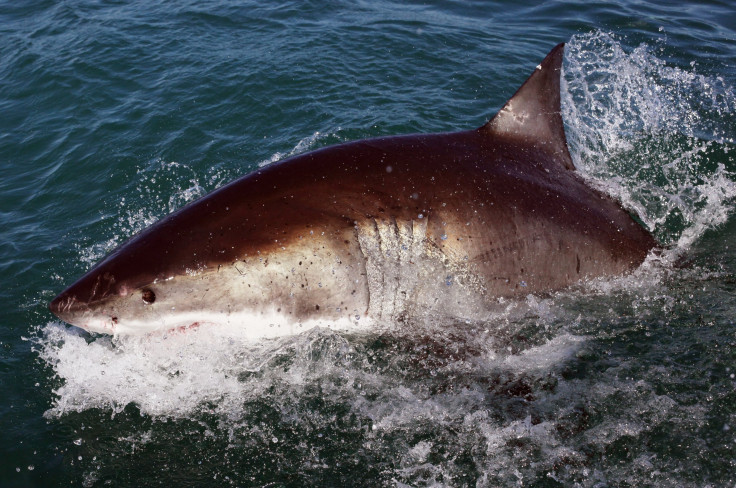Shark Attacks Surfer's Paddle Board In Cape Cod, Wellfleet Beach Closed

Another shark sighting was reported in the Cape Cod region on Wednesday morning when a shark bit a surfer's paddle board and prompted the closure of Wellfleet beach. The incident comes just days after a shocking video captured bloodbath when a great white shark killed a seal, just inches away from swimmers, calling for shark culling in the area.
On Wednesday morning, the surfer was in three feet of water and about 30 yards offshore in Marconi Beach in Wellfleet, Massachusetts, when the shark appeared and bit his paddle board. The surfer was not harmed in the incident and photos released to the local media showed the shark's teeth marks on the board.
Presumably, the shark came close to the shore after spotting some seals. "Seals were observed swimming nearby," National Park Service (NPS) in Cape Cod said on its Facebook page. "The encounter occurred during high tide and in calm seas." The incident is being investigated by the NPS, along with the Massachusetts Division of Marine Fisheries and the Atlantic White Shark Conservancy.
On Monday, Cape Cod's Nauset Beach was temporarily closed after surfers narrowly escaped a shark attack. A video released the same day shows how the water turned red after a shark killed a seal. "I was just, like, pulling my board, and people were yelling, 'Get out the water, get out the water!'" one of the surfers, Nisi Schlanger, told NBC New York. "I thought I was dead."
Another surfer recalled: "I just swam for my life right there, just dreading the moment the shark was gonna pull me in and suck me in."
Following the shark attack, Ron Beaty, the commissioner for Barnstable County, said that shark culling was important and the process had been beneficial in South Africa and Australia. “This shark, that attack that got videotaped off Nauset that was very close to shore and very easily could have been a small child and not a seal,” Beaty told the Boston Herald Wednesday. “It’s very easy for these sharks to mistake a person for a seal. They’re just looking for something to eat. God forbid it’s somebody’s child, and by that time, it’s too late. We can’t wait for that.”
“From my viewpoint, based upon the sharp increase in shark-related attacks and incidents around Cape Cod in recent years, there is a clear and present danger to human life as a result of this growing problem,” Beaty said without mentioning statistics.
According to the Florida Museum of Natural History, here are some ways you can lower the chances of being attacked by a shark.
1. Don't go swimming in shark infested waters.
2. Don't go into the water if you are bleeding. Sharks can smell blood a quarter of a mile away and easily trace the source.
3. Don't go swimming in the sea at dusk, dawn or at night, as these are the times when sharks are most active.
4. Don't wear shiny jewellery as it makes you look all shimmery. The reflected light may look like fish scales to sharks.
5. Don't wear brightly colored clothing as sharks can see contrasting colors well.
6. Don't swim alone or go too far from the shore. Being in a group or having a companion helps in cases of emergency.
7. Avoid swimming if there are diving seabirds and dolphins as sharks think these are easy preys and most sharks lurk around these animals.
© Copyright IBTimes 2025. All rights reserved.





















